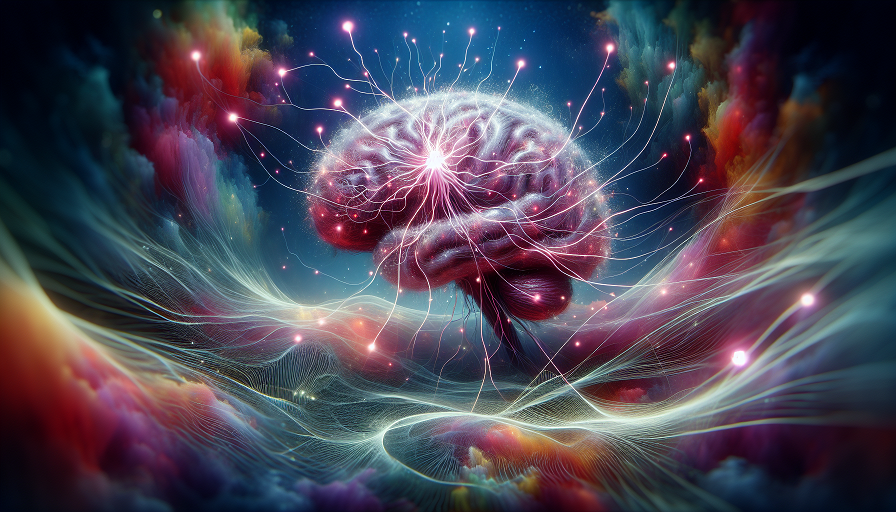
Every second counts in emergency services. Whether it’s a paramedic navigating chaos at an accident scene or a dispatcher coordinating life-saving responses over the radio, split-second decisions can mean the difference between stability and catastrophe. These high-pressure roles demand extraordinary cognitive performance—focus, recall, calm under pressure, and rapid decision-making. As these professionals push their minds and bodies to the edge, some are turning to nootropics—smart supplements designed to support mental clarity and endurance. But how effective are they in real-world emergency contexts?
Contents
- The Cognitive Demands of Emergency Response
- How Nootropics Can Help Emergency Professionals
- Top Nootropics for Paramedics and Dispatchers
- Adapting to Night Shifts and Sleep Deprivation
- Real-World Scenario: A Day in the Life of a Medic
- Guidelines for Safe and Effective Use
- Mental Readiness When It Matters Most
The Cognitive Demands of Emergency Response
Emergency workers face a unique mix of stressors. The work is often unpredictable, emotionally intense, and physically taxing. Yet amid the chaos, clarity is non-negotiable. There’s no room for brain fog when lives are on the line.
Key Cognitive Skills Required in Emergency Professions
- Sustained Attention: Maintaining concentration during extended shifts or while monitoring multiple inputs (e.g., radio, visual cues, patient symptoms).
- Rapid Decision-Making: Choosing the best course of action quickly, often without full information.
- Working Memory: Holding multiple data points in mind—vitals, protocols, patient history—while executing treatment or dispatch steps.
- Emotional Regulation: Staying calm and clear-headed in traumatic or high-stress environments.
- Mental Endurance: Performing under physical fatigue and cognitive load for hours at a time.
Supporting these abilities isn’t just a productivity boost—it’s about safety, performance, and longevity in demanding careers.
How Nootropics Can Help Emergency Professionals
Nootropics don’t create new skills—they optimize the brain’s natural capacity to think, remember, and stay composed under pressure. When used responsibly, they can buffer against burnout and fatigue, helping first responders remain sharp during extended shifts or critical situations.
Benefits of Nootropics in High-Stress Roles
- Improved Alertness: Staying sharp during long hours or overnight shifts.
- Faster Processing: Enhancing the brain’s ability to interpret information and respond swiftly.
- Reduced Anxiety: Supporting calm, focused performance even in emotionally intense scenarios.
- Mental Recovery: Promoting cognitive restoration between shifts to reduce cumulative fatigue.
While no supplement replaces training, experience, or protocol adherence, brain support can help responders bring their best self to the job, every time.
Top Nootropics for Paramedics and Dispatchers
The best nootropics for emergency professionals are those that balance stimulation with stability—boosting alertness without increasing jitteriness or stress. They must also support memory, calmness, and adaptability.
Recommended Nootropics for Cognitive Performance Under Pressure
- L-Theanine + Caffeine: Enhances focus and alertness with a smoother energy curve than caffeine alone. Reduces nervous overstimulation.
- Citicoline (CDP-Choline): Improves attention and memory while promoting brain cell communication. Helps keep the mind organized under pressure.
- Rhodiola Rosea: An adaptogen that reduces fatigue and enhances mental stamina. Ideal for shift workers or back-to-back emergency calls.
- Phenylpiracetam: Boosts reaction time and resistance to stress-related cognitive decline. Useful for high-speed environments.
- Magnesium L-Threonate: Supports stress resilience and improves working memory. Beneficial for mental clarity during emotionally intense events.
These nootropics are often used in strategic stacks tailored to shift schedules, personal response to stress, and job roles—paramedic vs. dispatcher, for example.
Adapting to Night Shifts and Sleep Deprivation
Night shifts are common in emergency response—and notorious for disrupting circadian rhythms. Sleep deprivation not only impairs performance but increases the risk of errors. Some nootropics can help mitigate these effects.
Helpful Compounds for Shift-Work Adaptation
- Modafinil (Prescription): Used under supervision to promote wakefulness during critical shifts. Helps sustain focus during unavoidable sleep loss.
- L-Tyrosine (NALT): Replenishes dopamine and norepinephrine, supporting mood and focus during stressful or low-sleep periods.
- Melatonin (for recovery): Supports faster sleep onset after night shifts, especially when paired with blue-light blocking and a dark sleep environment.
Managing shift transitions with supportive nootropics can make the difference between just surviving and sustainably performing under 24/7 demands.
Real-World Scenario: A Day in the Life of a Medic
Maria, an EMT in a busy urban area, often works 12-hour shifts—frequently overnight. Between adrenaline spikes and long periods of paperwork, she struggled with energy crashes and mental fog. After experimenting with L-Theanine, Citicoline, and Rhodiola, she noticed improved attention during patient handovers and better composure during chaotic scenes. Post-shift, she used magnesium and melatonin to unwind and reset her sleep.
The result? Fewer mistakes, better documentation, and a greater sense of control during long shifts. For Maria, nootropics became not just performance tools, but part of her self-care protocol in a demanding role.
Guidelines for Safe and Effective Use
Emergency professionals need reliability—not surprises. Any cognitive enhancer used in the field must be safe, predictable, and tested during non-critical practice settings.
Best Practices for First Responder Nootropic Use
- Test during training shifts: Never introduce a new supplement on a high-risk or live call day.
- Check for interactions: Especially important if using prescription medications or dealing with chronic conditions.
- Use third-party tested brands: Purity and dosage accuracy are essential when performance is on the line.
- Monitor hydration and nutrition: Nootropics work best with adequate fuel and fluid balance—common issues during long shifts.
It’s not about doing more work—it’s about doing vital work more effectively, sustainably, and safely.
Mental Readiness When It Matters Most
For emergency responders and dispatchers, mental readiness is mission-critical. Quick thinking, emotional steadiness, and accurate decision-making are non-negotiable—and increasingly, nootropics are being used to support those demands. When chosen wisely and used responsibly, brain supplements can help reduce the cognitive toll of long shifts, emotional fatigue, and unpredictable schedules.
Whether you’re stabilizing a trauma patient or directing a multi-agency response, your mind is your most important tool. With strategic supplementation, it’s possible to keep that tool sharp, steady, and ready—no matter what the shift throws your way.

